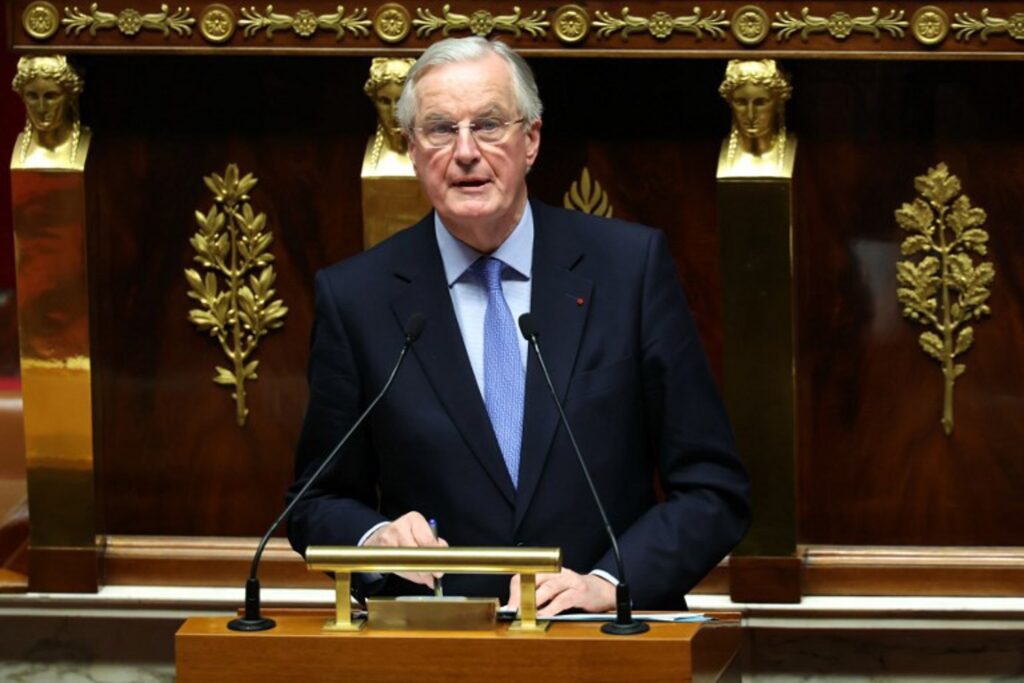French Prime Minister Michel Barnier left the Élysée Palace on Thursday morning to submit his government’s resignation to President Emmanuel Macron after yesterday's no confidence vote.
Barnier was expected to submit his government's resignation to Emmanuel Macron following a historic vote of no confidence in the French Parliament on Wednesday night. He left the Élysée Palace around 11:00 on Thursday after an hour-long meeting with the President, AFP reported.
The President accompanied the ousted Prime Minister to the front steps. Barnier lingered for several minutes to speak with Alexis Kohler, the Élysée's Secretary-General, before departing by car.
The heads of the National Assembly and the Senate, Yaël Braun-Pivet (Renaissance) and Gérard Larcher (The Republicans), will be received by Emmanuel Macron at the Élysée Palace on Thursday, France24 reports.
Macron will address the French public in a formal speech at 20:00 on Thursday.
According to Article 50 of the Constitution, the Prime Minister must submit the government's resignation to the President after the adoption of a vote of no confidence by the France's parliament, the National Assembly.
Barnier was appointed as Prime Minister by Macron despite coming from the conservative Republicans party, who only won 46 out of the 533 seats.
"If Emmanuel Macron does not appoint a prime minister from the NFP, we will automatically censure the government," warns Mathilde Panot leader of France Unbowed in the National Assembly, on French media LCI. Her party are a major component of the left-wing alliance NFP won the most seats but fell short of a majority.
On Wednesday evening, the French Parliament passed a vote of no confidence against Barnier and his centre-right minority government, which included Macron’s Renaissance party. The government had been in power only since September.
The leftist opposition alliance New Popular Front (NFP) and the far-right National Rally (RN) both submitted no-confidence motions on Wednesday. They opposed the government’s use of Article 49.3 of the constitution to push through a budget with significant cuts without parliamentary approval.

